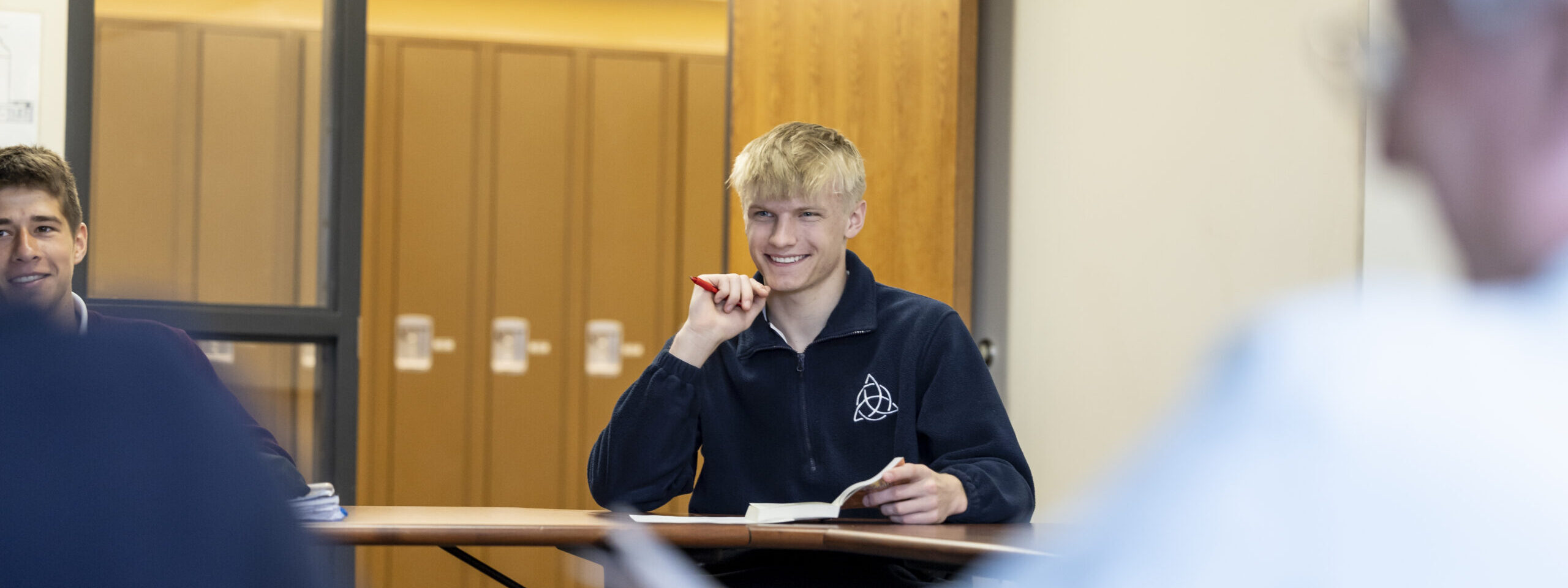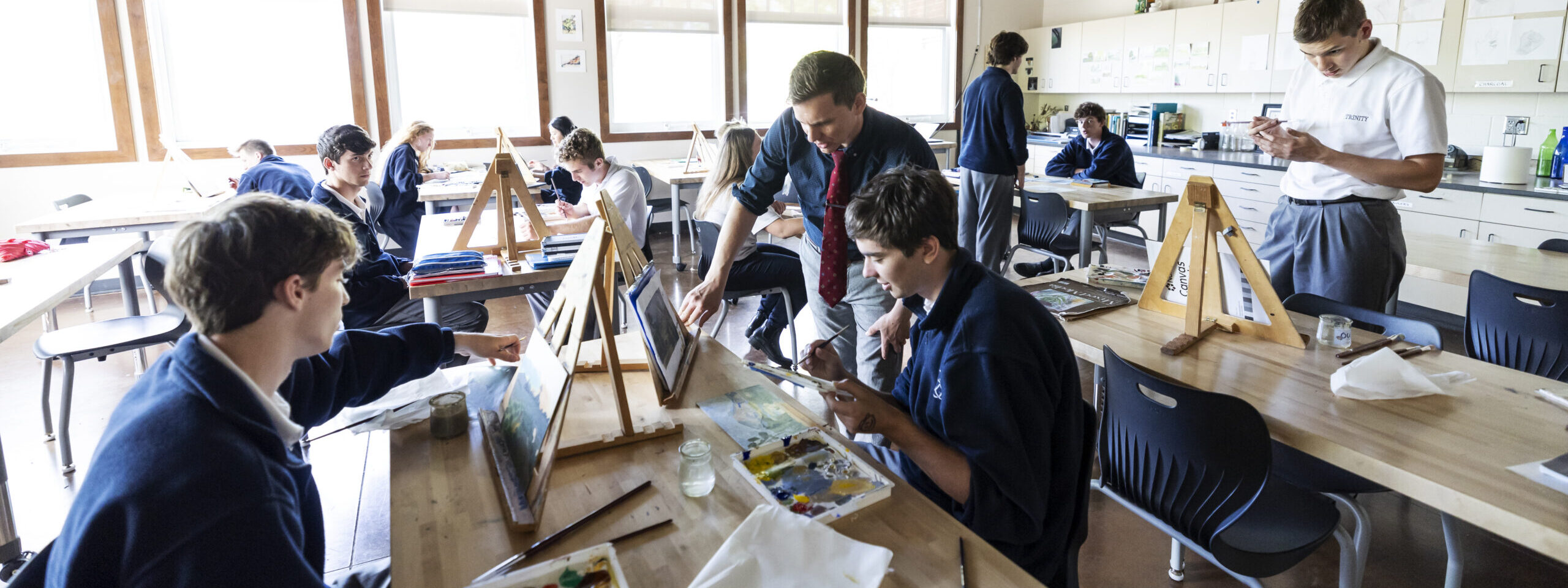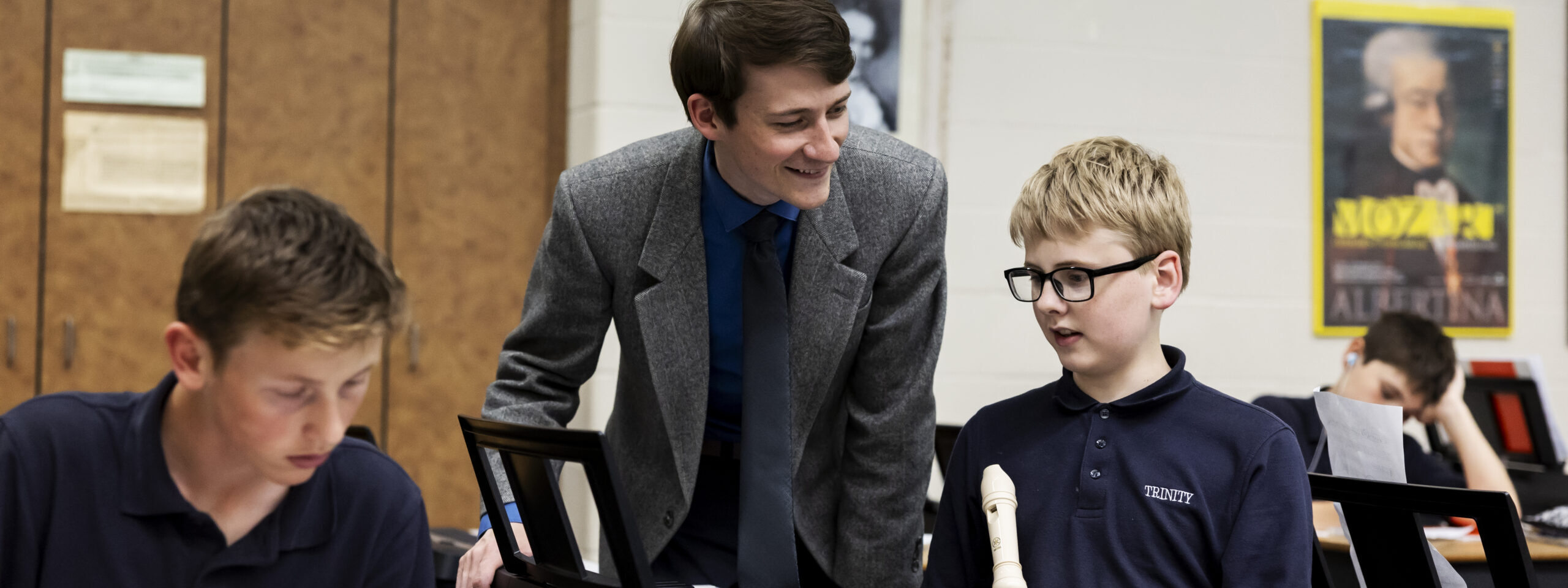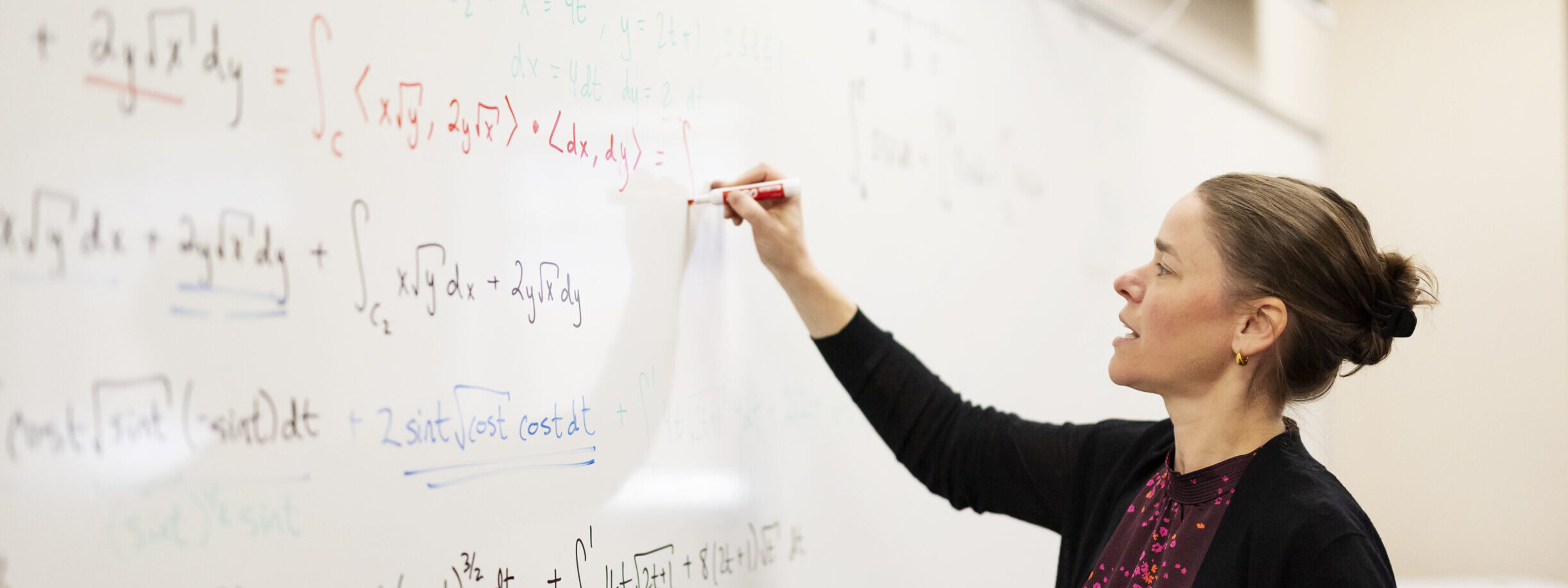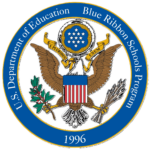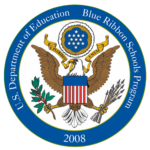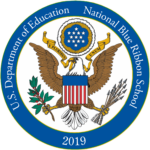“What then is the end, object, or purpose of humane letters? Why, the expression of the moral imagination; or, to put this truth in a more familiar phrase, the end of great books is ethical—to teach us what it means to be genuinely human.”
Russel Kirk, The Moral Imagination
Junior High Literature and Composition. Students receive instruction in English grammar and punctuation using exercises from the Holt Handbook. As they acquire familiarity with the parts of speech and varied sentence structures, they begin to write sentences, graduating from simple to compound and complex sentences. By the end of eighth grade, students will regularly write paragraphs on questions drawn from the imaginative literature and poetry they are reading. They are instructed in close reading and learn how to participate in lively, textual, and mature discussions on the texts they are reading. Imaginative literature includes Tom Sawyer, Shane, The Miracle Worker, A Christmas Carol, The Hobbit, and Watership Down.
Humane Letters Seminar (9th-12th grade). The Humane Letters Seminar integrates imaginative and expository literature into one two-hour course. Students read original texts and historical documents. Important dates, events, and persons should be a part of the vocabulary of any educated person.
In the 9th grade, students begin their study of American history with a focus on the historical events surrounding the founding of the United States. A careful and thorough reading of founding documents—the Declaration of Independence, the Constitution, and the Federalist Papers—includes memorization of important passages as well as discussion. The second semester includes a deep study of the Civil War and concludes with the fall of the Berlin Wall during the Reagan presidency. In addition to original documents, great works of American imaginative literature and poetry are interspersed throughout the year. These include My Antonia, the Adventures of Huckleberry Finn, Our Town and To Kill a Mockingbird.
The tenth grade seminar turns to European history, with a focus on the development of constitutional government in response to the various revolutions fought on the other side of the Atlantic. Students read and discuss original works of political theory including Locke, Hobbes, and Rousseau. They also read works of imaginative literature including Pride and Prejudice, A Tale of Two Cities and Crime and Punishment.
In their junior and senior years, students examine the roots of modern civilization, beginning with the Greek poets and philosophers including Homer, Aeschylus, Plato’s Republic and Aristotle’s Nicomachean Ethics. Senior year introduces a study of modern thought and its consequences. Readings include Shakespeare and Dostoyevsky, Locke, Rousseau and Marx. For a full reading list click here.
Students receive instruction in grammar and composition throughout their tenure at Trinity. Beginning in the 9th grade, students receive rigorous instruction in writing and regular opportunities to practice and hone their skills.

